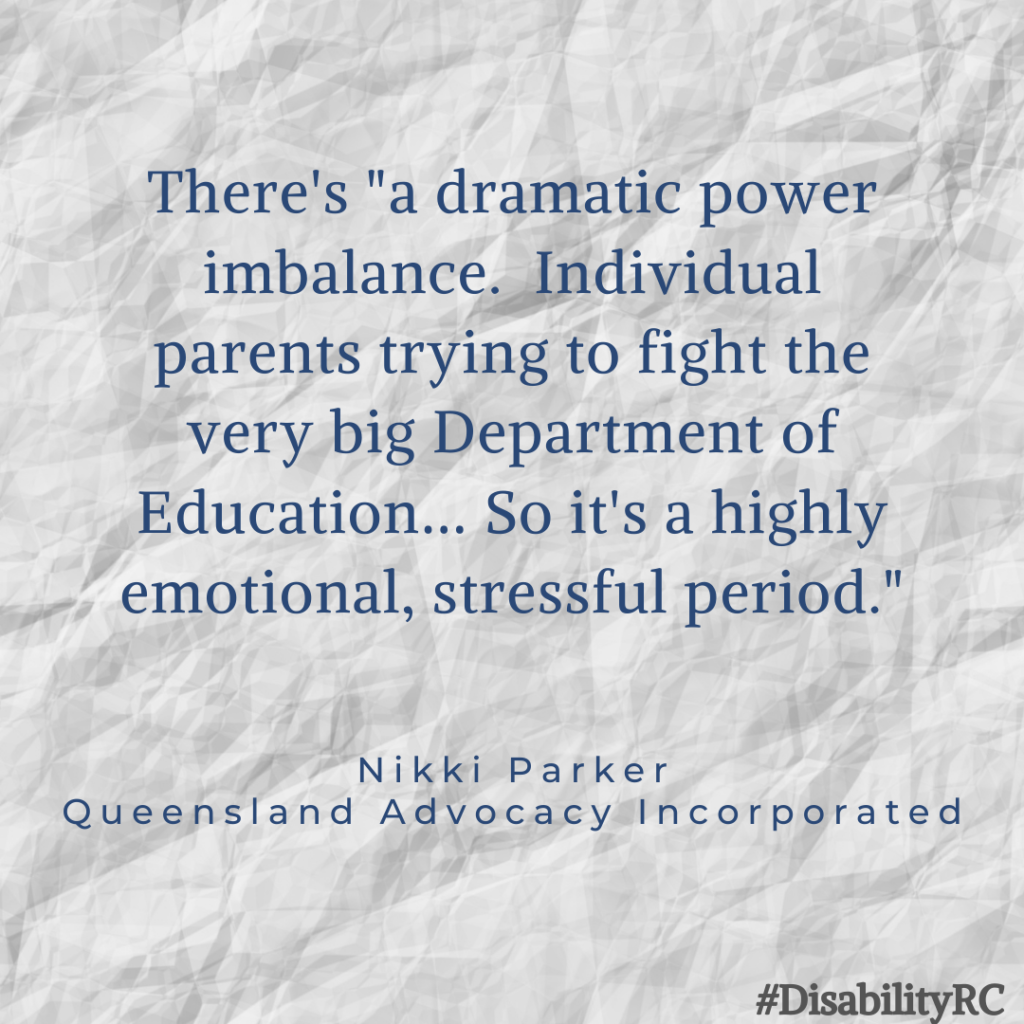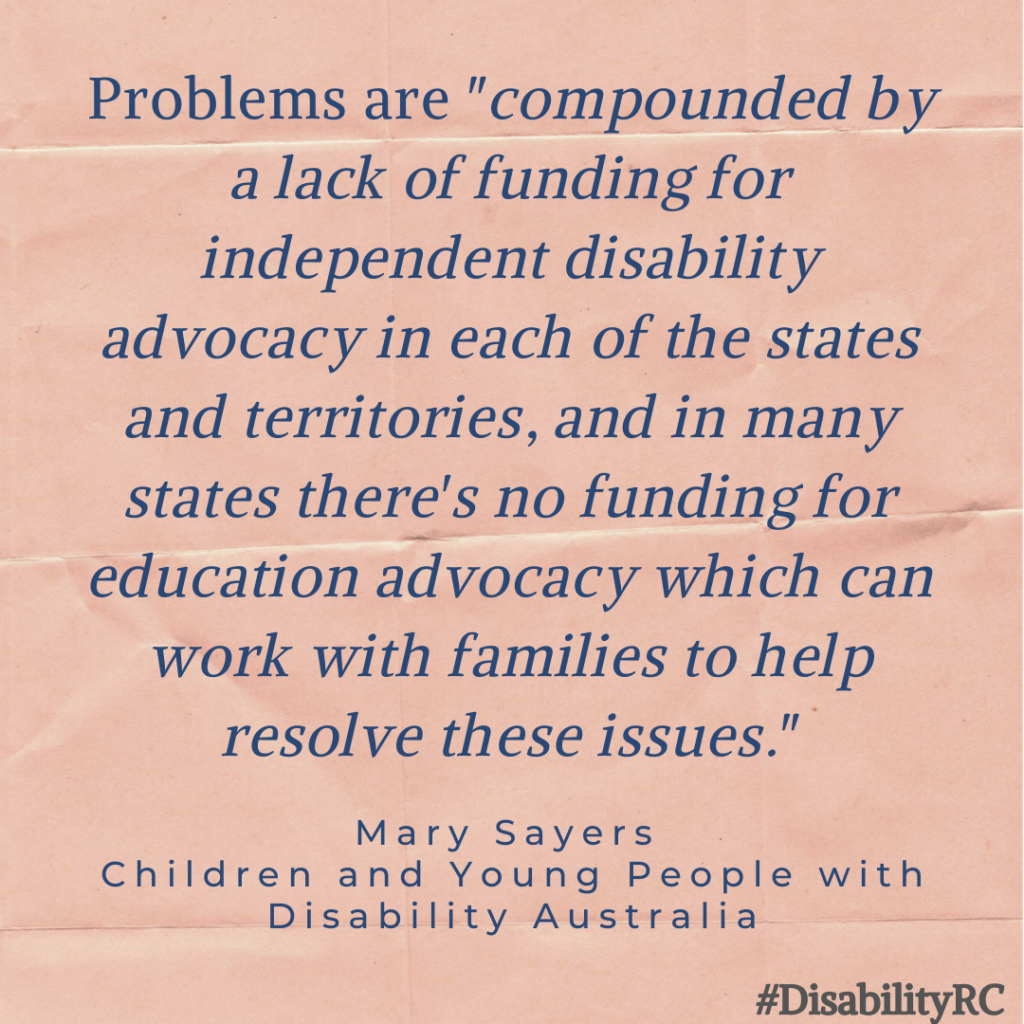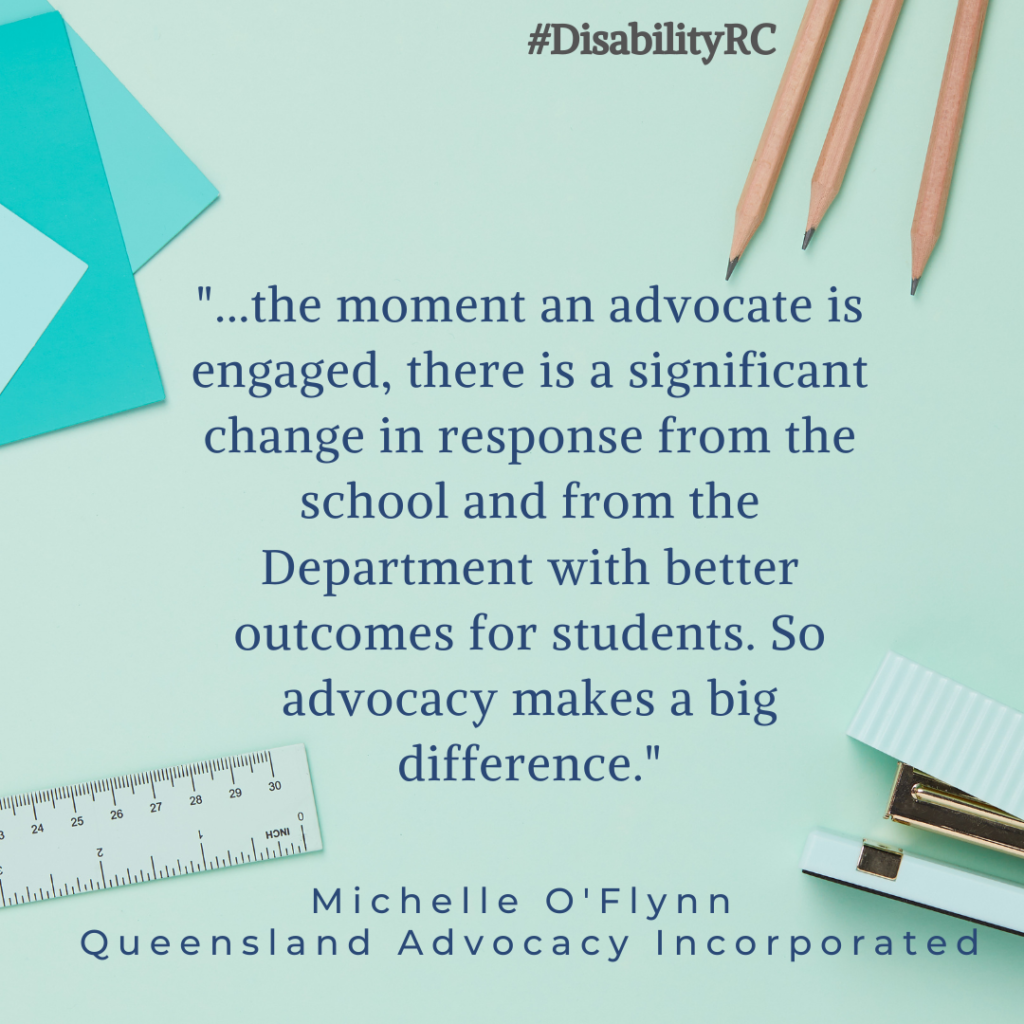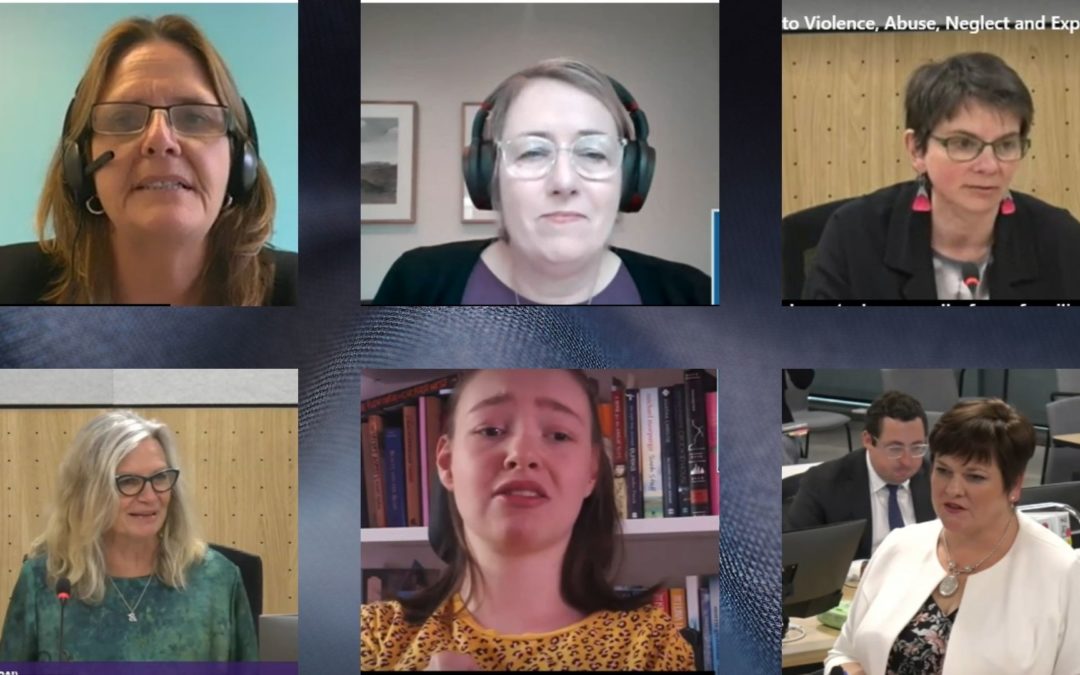The Disability Royal Commission public hearing in October was focused on Barriers to accessing a safe, quality and inclusive school education and life course impact
This public hearing explored the barriers experienced by students with disability in accessing and obtaining a safe, quality and inclusive school education and the resulting impacts on the life course of those students, and their families, when these barriers prevent access to equitable education.
The scope and purpose of the public hearing included:
- the impact on students with disability of absences, suspensions, exclusions and expulsion from school
- the re-engagement of students with disability when they have experienced absences, suspensions, exclusions or expulsion from school
- the provision of adjustments and supports, and the barriers to making reasonable adjustments and supports available, for students with disability
- individualised planning for students with disability
- the use of restrictive practices on students with disability;
- teacher training and qualification requirements for students with disability
- the resulting impacts on the life course and mental health of students with disability who have experienced barriers in education, including the transition to higher education and employment.
On the first day of the hearing Commissioners heard from a panel of representatives from advocacy organisations, with particular knowledge of education issues:
- Michelle O’Flynn and Nikki Parker from Queensland Advocacy Incorporated, a community‑based systems and individual advocacy organisation;
- Mary Sayers, from Children and Young People with Disability Australia; and
- Cecile Elder from Family Advocacy, an organisation that provides advocacy advice, support and advocacy leadership to families.
As Senior Counsel Assisting Dr Kerri Mellifont QC noted in her opening statement:
“These independent organisations represent, and take enquiries from, parents, carers and students within the public and private systems, QAI from Queensland, Family Advocacy from New South Wales, and CYDA from across Australia.
These witnesses can speak to issues which are commonly brought to their attention from their stakeholders which are of specific relevance to this hearing. They include: adjustments and supports being insufficient, or not being provided; low expectations of students with disability and the flow‑on impacts; suspensions, exclusions and expulsions; barriers and problems with existing complaints and review mechanisms; barriers in transitioning beyond school.
They can also speak to the devastating impacts they have seen on students with disability and their families who have endured some or all of these issues — the far‑reaching, and sometimes in the broader community unseen impact of educational neglect.”
![Lots of families feel "it’s luck of the draw in relation to getting a teacher, a school leader, that is wanting to provide the appropriate supports and adjustments and if they do get lucky and they get a great teacher who is skilled, competent and also has the right attitude... then if that teacher leaves them...they're back to square one..." Cecile Elder Family Advocacy [IMAGE: hand rolling dice]](https://www.dana.org.au/wp-content/uploads/2020/10/Education-advocacy-1-1024x1024.png)



During the session, Commissioners also viewed an excerpt of a video from “Alice”, a high school student with a disability who demonstrates eloquently and with extraordinary clarity the importance of actually ensuring a support or adjustment is tailored to the individual student:
“…What I’m talking about is a kind of inequality. Inequality disguised as acceptance. A one‑size‑fits‑all approach that sees us as people but refuses to acknowledge us as individuals.”
If you’d like to read more quotes from the hearing, visit DANA’s Spotlight on Advocacy page.

